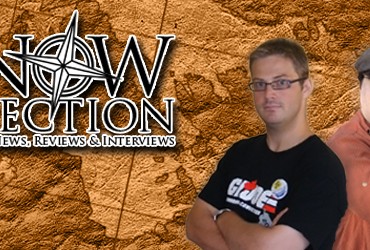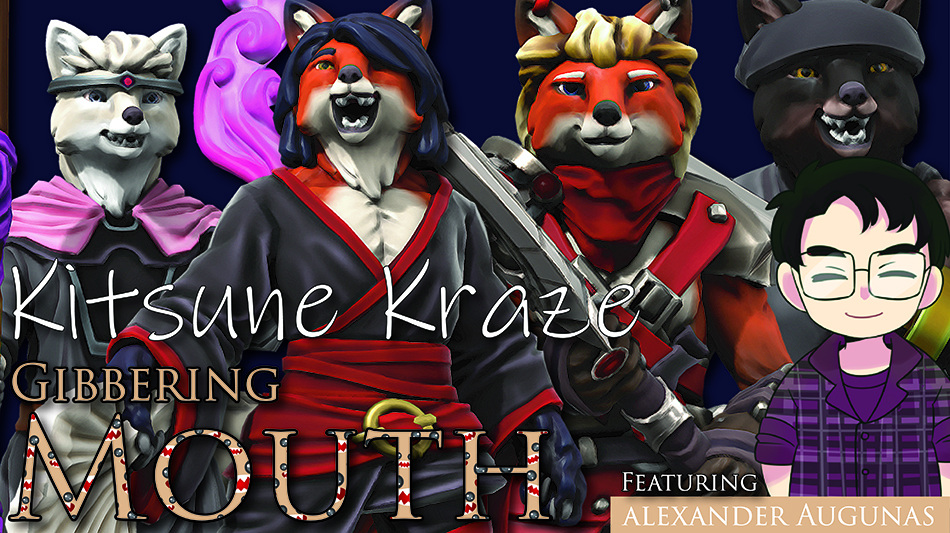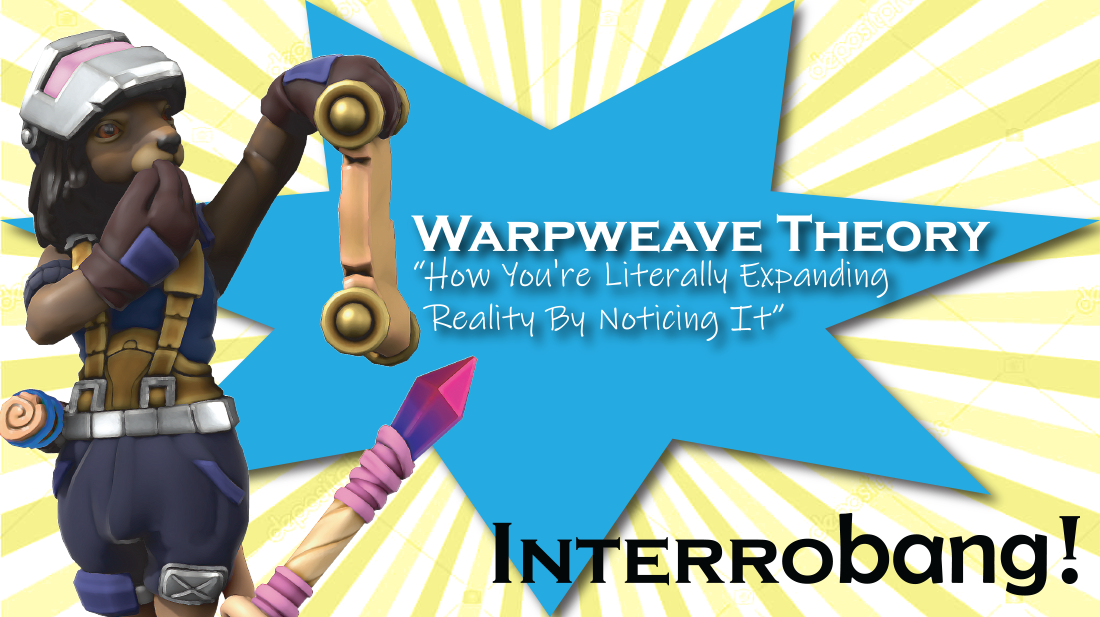Welcome to Guidance, Private Sanctuary’s source for tips and techniques for the Pathfinder Roleplaying Game, written by Everyman Gamer Alexander Augunas. Today, we’re going to be talking about player quirks.
On Saturday, I ran two games of Pathfinder Society: Cairn of Shadows and Out of Anarchy. In both games, I had at least one of my PFS buddies sitting at the table; James, Casey, and Josh at Cairn of Shadows and Casey at Out of Anarchy. The three of us are part of a vigilante playtest group, where we’ve been running PFS games and recording the feedback that we have for Paizo after the game was over. In Out of Anarchy, Casey was playtesting his tengu stalker vigilante, the Dark Dalliance. At the start of the game, he asked me if it would be okay if he played a bit of theme music the first time that he changed from his social identity to his vigilante identity. Being an easy-going guy, I said sure and thought nothing of it.
Well, about three hours into the scenario, it finally happened. Casey snuck off to a back alley and changed his identity. He turned on his iPhone and began quickly telling us exactly what his tengu did to change his persona from social to vigilante, and let me tell you he had EVERYTHING down. He said it was improved, but there’s just no way. He even included crazy, “I can’t believe your body can bend that way,” anime poses as narrated. By the end, we were all DYING of laughter. And in that moment, this article was born.
What Are Player Quirks?
The word ‘quirk,’ means, “a peculiar behavioral habit, so a ‘player quirk’ is any peculiarly behavioral habit in regards to one’s role as a player. Player quirks appear in virtually all kinds of games, not just Pathfinder. For instance, someone at the Philly Lodge mentioned how he has this obsessive need to gather as many resources as possible when he’s playing World of Warcraft. Player quirk. Likewise, being a completionist (I NEED ALL OF THE BOBBLEHEADS, GUYS!) is a player quirk. What it means to have a player quirk is pretty widely drawn and diverse. Here are a few that exist in my home games and that I’ve seen in the regulars at my PFS Lodge.
- All of my characters are a member of a specific race. (Example: kitsune.)
- All of my characters have an identifying piece of gear. (Example: fedora.)
- All of my characters have ranks in a specific skill so I can use my metagame knowledge with that character. (Example: Spellcraft.)
- All of my characters use a specific combat strategy. (Example: martial.)
- All of my characters use a specific weapon or weapons. (Example: firearms.)
- All of my characters have a specific personality trait. (Example: paranoid.)
Why Have Quirks
Before I begin to answer this question, the first thing that I want to flat-out say is that when we talk about player quirks, it should be clear that you should never be one to cast any stones at a fellow player or GM about their quirks. The fact is that everyone has preferences that affect their gaming behavior and result in the development of player quirks: if you think you don’t have any quirks, you’re either ignorant of them or lying.
With that out of the way, why have quirks? Or to ask a better question, why do we develop quirks? Well, there are plenty of reasons, and most of them are conditioned, believe it or not. I strongly think that we as players have our gaming habits molded by our GMs; a player with an especially sadistic GM learns that paranoid is the best way to keep her character alive, and so she becomes paranoid. A player that learns that a specific statistic, such as hp or skill ranks, is favored by her GM will slowly alter her playing style to favor what her GM favors, whether she realizes it or not. In contrast, counter GM player exist who get bored with what they constantly see other GMs do, perhaps even their GM of countless years, and try to change things up to make the game novel and fresh for themselves. Sometimes player quirks develop as a result of what happens when the dice are thrown, rather than the whims of the GM. For instance, a new player who is utterly shut down by spell resistance in one fight might never forget the frustration that he felt constantly succumbing to spell resistance, and so he might decide to invest resources into beating spell resistance on every spellcasting character that he created from then on.
Moreover, is having a quirk a bad thing? That’s also a difficult question. Typically, if a player’s quirk doesn’t affect other players’ ability to enjoy the game, then there’s no problem. For instance, if my friend Justin prefers playing skill-based characters or my brother, Adam, describes all of his characters as wearing a fedora, then that doesn’t affect the party’s dynamics. But if one player constantly plays characters who are so paranoid that he can’t cooperate with the party, then that’s a quirk that needs addressing by the group. That said, I also don’t think that a group has the right to censer a player ‘s mechanical choices. For instance, if I choose to play a kitsune and one player in my party doesn’t care for them, does that player have a right to censor my gameplay choice? I would argue no, but overall it’s a difficult call. As a general rule, I’d say that behavior, not mechanics, is what should be discussed in this manner.
Wrap-Up
There isn’t a whole lot to say on this topic; player quirks exist, love them or hate them. Remember that its important to consider why a behavior develops and before you get annoyed with the player, consider whether that behavior actually affects your play experience or not. Should you be mad at the guy who plays a fighter with the same build in every campaign that you run with him? I think not; if it’s a character build he enjoyed, what does it matter to you? Behaviors that are worth bringing to bare are those that disrupt gameplay, such as theft, trolling, and overall uncooperative playing. (Assuming that your group doesn’t enjoy behaviors like this; if you’re playing in Way of the Wicked and this is par for the course, then the behaviors aren’t a problem and should be embraced.
I believe that one of the best ways to be empathetic of other people’s player quirks is to identify your own, because when we realize that things that other people do aren’t so different from our own actions, it becomes easier to rationalize and tolerate them. So what are your player quirks? What behaviors and preferences do you have when playing (or running) a game? And this doesn’t have to be restricted to Pathfinder; if you’re that guy in Splatoon who tries to draw naughty pictures with your ink in the middle of Splatfest, that’s certainly a quirk in and of itself.
Enjoy your week, keep your quirks and others in mind, and I’ll see you back here on Friday for another Iconic Design! Take care.
Alexander “Alex” Augunas has been playing roleplaying games since 2007, which isn’t nearly as long as 90% of his colleagues. Alexander is an active freelancer for the Pathfinder Roleplaying Game and is best known as the author of the Pact Magic Unbound series by Radiance House. Alex is the owner of Everyman Gaming, LLC and is often stylized as the Everyman Gamer in honor of Guidance’s original home. Alex also cohosts the Private Sanctuary Podcast, along with fellow blogger Anthony Li, and you can follow their exploits on Facebook in the 3.5 Private Sanctuary Group, or on Alex’s Twitter, @AlJAug.







Hmm, player quirks that I’m aware of in myself… I know that for martials of any sort, I tend to prefer lightly armored, fast and agile characters. I know that when it comes to magic, I vastly prefer ‘gish’ characters to pure caster; I tend to think of pure casters as more ‘mobile artillery’ than actual characters. I like my characters being intelligent, because I’m an intelligent guy. I also know that, after some bad experiences with role-playing in Kingmaker, I’ve pretty much designed any and all characters I would play to have investment in Diplomacy and other social skills, even if they have negative Charisma.